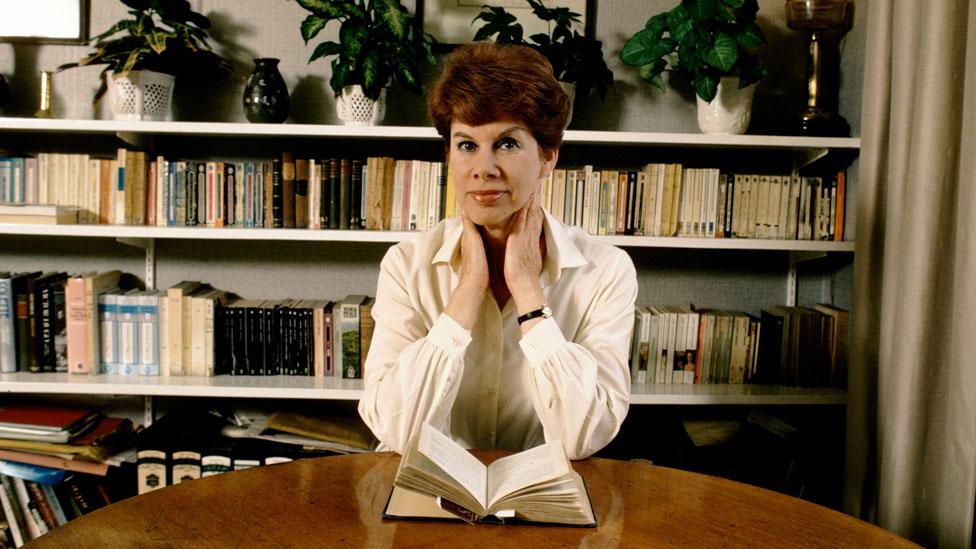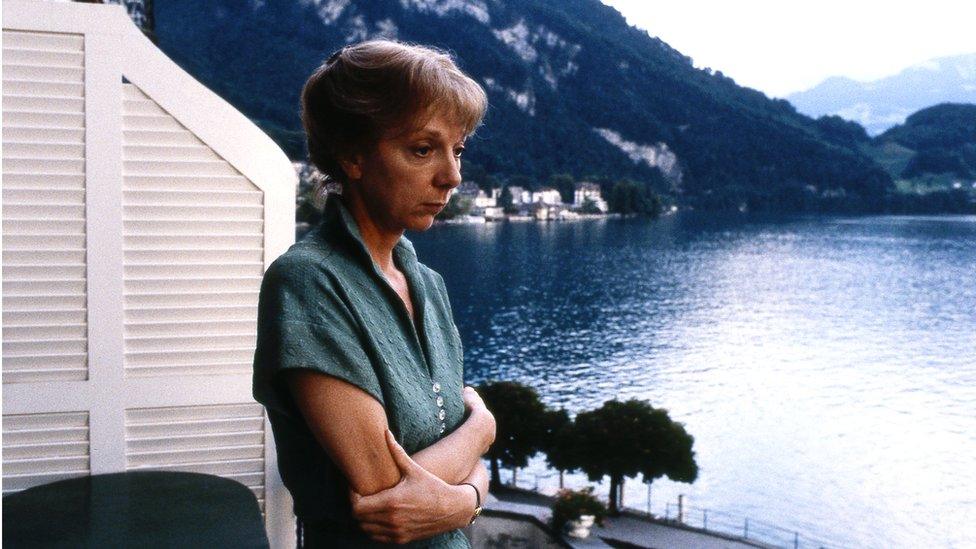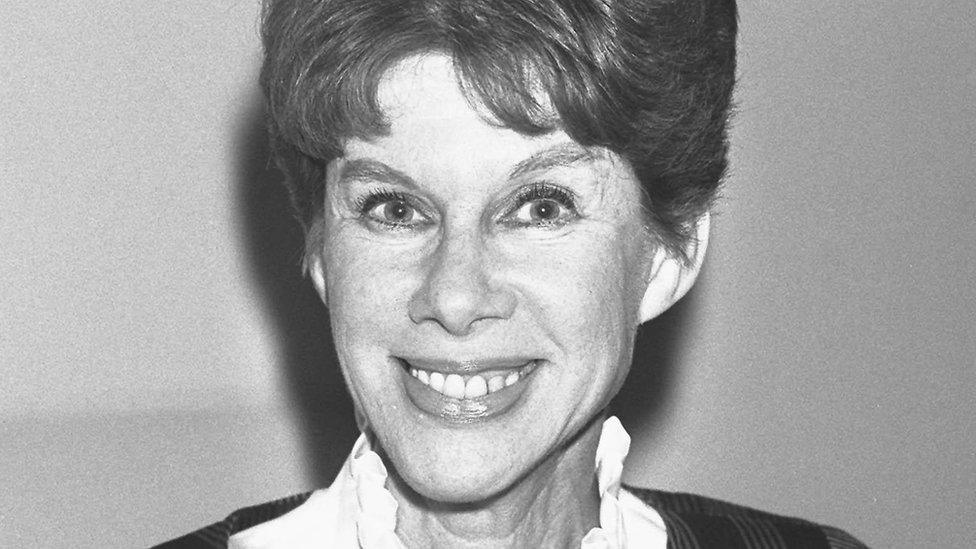Anita Brookner, Booker Prize-winning author, dies aged 87
- Published

Anita Brookner won the Booker Prize for her novel Hotel du Lac in 1984
Anita Brookner, the Booker prize-winning British author and renowned art historian, has died at the age of 87.
She won the Booker in 1984 for her novel Hotel du Lac, one of 24 novels she wrote after a distinguished career as an art historian.
She died on 10 March. A notice of her death in the Times said she had requested not to have a funeral.
Fellow novelist Jilly Cooper paid tribute to her "wonderful lucid prose", and said she was "an icon of my age".
London-born Brookner began writing fiction in her 50s.
She had already been the first woman to hold the Slade professorship of fine art at Cambridge University, and taught at the Courtauld Institute of Art.
'Serious writer'
Her first novel, A Start in Life, was published in 1981, and she went on to publish a book almost every year for the next three decades. Her most recent work, the novella At The Hairdresser's, was published in 2011.
Her publisher Juliet Annan described Brookner as "an exceptional writer in so many ways", who was also "a superb art historian" and "erudite critic".
"Her novels are beautifully written - her sentence structure is pure pleasure," she said. "But I think what people miss is that her novels are some of the most shocking of the 20th century, for underneath the veneer of novels plots about women failing to marry, failing to see the venal in those around them, failing to make successful lives. She wrote about the biggest fears we have: loneliness and death."
Annan said her novels were often funny however - as was Brookner, and added: "There are few people, let alone novelists, as intelligent, as intellectually rigorous as she. We will miss her."
Cooper told the Times she "never stopped watching and observing", and described her as a "serious, serious writer who was very spare in her prose.
"I used to watch her at parties and everybody else was getting legless while she was just observing everybody."

Hotel du Lac was adapted into a BBC television drama in 1986 starring Anna Massey as Edith Hope
Born in 1928, Anita Brookner was the only child of Polish Jewish parents who opened their London home to refugees escaping persecution by the Nazis during World War Two.
As a young woman she spent three years studying in Paris as a postgraduate, and reportedly said she had "never been so happy".But she often spoke of how her family's roots made her feel like an outsider in the UK, once saying in an interview that she had "never learnt the custom of the country... we were aliens... tribal".
She never married or had children - and, in a rare interview with the Telegraph, external in 2009, said: "That's why I write. Because I have no children."
Made a CBE in 1990, she was best known for exploring themes of social isolation through her female protagonists.
'Master of incisive fiction'
Hotel du Lac tells the story of romantic novelist Edith Hope, who is banished by her friends after breaking off an engagement, and goes to stay in a hotel on the shores of Lake Geneva.
There she meets an assortment of people, and observing them helps her to understand what course she should take in life.
The book was seen by some critics as a surprise winner, but became one of the top ten bestselling books of the 1980s and was adapted for a BBC television drama in 1986.
Her other books included The Rules of Engagement and The Next Big Thing.

Brookner only started writing fiction when she was in her 50s
Readers and fellow-writers paid tribute to the author following the news of her death.
Orange Prize-winning novelist Linda Grant tweeted, external: "Oh, I admired her so much. An underrated master of incisive fiction and laser prose Anita Brookner."
She added: "Always felt an affinity with Anita Brookner, her nervous Jews in overheated overfurnished flats in St John's Wood."
Jonathan Coe said he was said to hear the sad news of the "magnificent" Brookner's death, adding, external: "A great writer. Hotel du Lac one of the best Booker winners ever in my opinion."
Author Lady Antonia Fraser said Hotel du Lac was wonderful. "In a strange way it was pathfinding. I much respected her."


Ron Charles, editor of Book World at the Washington Post, tweeted, external: "Very sorry to hear of Anita Brookner's passing. No one captured the rhythms of loneliness as brilliantly as she did."
And Chocolat author Joanne Harris simply wrote, external: "Oh, Anita Brookner. #RIP"